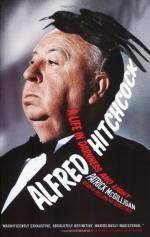|
This section contains 1,182 words (approx. 4 pages at 300 words per page) |

|
Although Alfred Hitchcock is the most primitive of major directors, he belongs in their company. Those who emphasize his primitivism also dismiss his achievement, but his achievement is fundamental to the art of cinema—more specifically, to the art of using cinematic means for audience manipulation. (p. 295)
Most of Hitchcock's ideas about the real world are indistinguishable from the commonest pieties—which, of course, helps to explain his unique popular appeal. To begin with, he is discomforted by intellectuals. (pp. 295-96)
Occasionally in all of his films and always in the best of them, Hitchcock is the master of evocation. Intellectual emptiness and spurious realism are preconditions for his effects. Since Hitchcock depicts a world in which anything can happen, and therefore everything is a threat, distinctions and priorities are forbidden.
Like Poe, the writer he most resembles, Hitchcock is obsessed by a small stock of situations which...
|
This section contains 1,182 words (approx. 4 pages at 300 words per page) |

|


